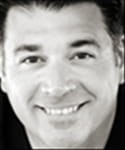Knowing the Bad Religion
- Published Jun 14, 2018
In Ross Douthat’s book Bad Religion, the New York Times columnist offers a synopsis of the core beliefs of America’s wave of “spiritual but not religious” teachers such as Deepak Chopra, James Redfield, Eckhart Tolle, Paulo Coelho, Neale Donald Walsch, Oprah Winfrey and Elizabeth Gilbert. According to Douthat, their “creed” shares four beliefs:
- All organized religions offer only partial glimpses of God (or Light or Being). Thus, we must seek to experience God through feeling rather than reason, through experience rather than dogma, through a direct encounter rather than a hand-me-down revelation. As Neale Donald Walsch writes in his book Conversations with God: “Listen to your feelings. Listen to your Highest Thought…. Whenever any of these differ from what you’ve been told by your teachers, or read in your books, forget the words.”
- God is everywhere and within everything—especially within you. You can encounter God by getting in touch with the divinity who resides inside your very self and soul. At the climax of his book The Alchemist, Paul Coelho writes: “The boy reached through the Soul of the World and saw that it was a part of the Soul of God. And he saw that the Soul of God was his own soul.”
- Sin and evil are largely illusions that will ultimately be reconciled rather than defeated. There is no hell save the one we make for ourselves on earth—no final separation from the Being within whom all our beings rest. Elizabeth Gilbert assures her readers, “There is no such thing in this universe as hell, except maybe in our own terrified minds.”
- Perfect happiness is available right now. Heaven is on earth. Eternity can be entered at any moment, by any person who understands how to let go, let God, and let himself or herself be washed away in love. James Redfield writes, “At some point everyone will vibrate highly enough so that we can walk into heaven, in our same form.” And Coelho adds: “I do believe in life after death, but I also don't think that it’s that important. What’s important is to understand that we are also living this life after death now.”
I have written similarly of the “Church of Oprah-Wan Kenobi” and the rise of a new New Age movement that is based largely on popularized Hinduism, which is what Douthat has described. But what Douthat, I and others have actually detailed is the official religion of the cultural epicenters, namely media. It is not the official religion of the religiously unaffiliated.
At least, not yet.
The Pew Forum study, among others, has found that the ranks of the unaffiliated are not predominantly composed of New Age spirituality or alternative forms of religion. Generally speaking, the unaffiliated are no more likely than members of the public as a whole to have such beliefs and practices. That means that approximately three in ten say they believe in spiritual energy in physical objects and in yoga as a spiritual practice. Approximately 25% believe in astrology and reincarnation. Six in ten say they have a deep connection with nature and the earth. About three in ten say they have felt in touch with someone who is dead, and 15% have consulted a psychic. All of these figures closely resemble the public as a whole.
The importance of knowing the “bad religion” advertised through popular culture is the effect it will inevitably have on the religiously unaffiliated as they separate from religion itself. Right now they do not seem to be any more affected than people of defined faith, but that is arguably the strength of their, largely, Christian memory. Most of the newly unaffiliated were part of a Christian faith tradition that was anything but Eastern in orientation. Once untethered from these moorings, whether Catholicism or Protestantism, they will be more susceptible to the prevailing views of culture.
Our inner world abhors a vacuum; we will fill it with something.
James Emery White
Sources
James Emery White, The Rise of the Nones: Understanding and Reaching the Religiously Unaffiliated.
Ross Douthat, Bad Religion: How We Became a Nation of Heretics.
“The Core Beliefs of America’s ‘Spiritual but Not Religious’ Teachers,” Preaching Today, June 20, 2012, read online.
Pew Forum on Religion and Public Life, “Nones on the Rise,” read online.
To learn more about the rise of the “nones,” Generation Z, and how the church can respond in our post-Christian culture, register now for the Church & Culture Conference kicking off the U.S. tour this August.
About the Author
James Emery White is the founding and senior pastor of Mecklenburg Community Church in Charlotte, NC, and the ranked adjunctive professor of theology and culture at Gordon-Conwell Theological Seminary, where he also served as their fourth president. His latest book, Meet Generation Z: Understanding and Reaching the New Post-Christian World, is available on Amazon. To enjoy a free subscription to the Church & Culture blog, visit ChurchAndCulture.org, where you can view past blogs in our archive and read the latest church and culture news from around the world. Follow Dr. White on Twitter and Instagram @JamesEmeryWhite.



















